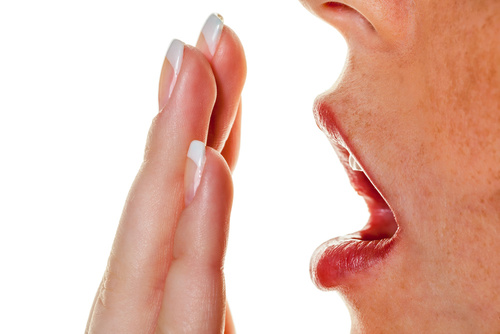Many people are not bothered about the odors in their mouths, whereas a small percentage who have bad breath constantly go out of their way trying this and that to keep their mouths fresh. You will find many more often than not chewing gum in the name of hiding the bad breath.
But what is bad breath? What causes it, and what are the treatments or preventive measures against it?
Bad breath is defined as an unpleasant odor on the breath of a person, and can be experienced in children and occasionally in adults. Many people may not know they have bad breath until they are told by someone close to them, yet at least 50% of people are likely to suffer from bad breath.
While bad breath is mainly caused by accumulation of bacteria in the mouth resulting from food, gum diseases or plaque, certain lifestyles choices may also determine the nature of our bad breath: e.g., the smells emanating from those people who use strong-tasting foods like onions and garlic may be termed as “bad breath” by some people. A non-smoker may find a smoker’s breath unpleasant and smelly.
However, experts say the majority cases of bad breath are caused by poor dental hygiene. This is when we allow food trapped in our teeth to stay a long time without brushing, until it eventually decomposes or rots, resulting to bad breath. Other causes include:
- Illnesses, or certain medical conditions. Various illnesses like liver or kidney problems, tonsillitis may lead to bad breath.
- Smoking
Continuous smoking may cause gum disease and other related dental problems, which eventually causes bad breath.
- Morning bad breath: Our mouths do not usually smell nice in the morning. This is a result of the dry spell our mouths experience when we sleep, and therefore it could be temporary. As the day progresses, and as the flow of saliva increases, the morning bad breath ceases.
- Poor dental hygiene: Dentures that are not properly and regularly cleaned risk causing bad breath. Additionally, if they are not fixed well the food is likely to get stuck on them.
The common treatments and prevention methods for bad breath are:
- Proper dental hygiene: Any dentist will advise you to brush your teeth twice a day using toothpaste containing fluoride and a medium or soft-bristled toothbrush, which should be replaced occasionally.
- Proper use of dentures: They should not be cleaned with toothpaste, because there is a possibility of staining or scratching them. Instead, use warm water and the recommended cream. They should also be taken out at night.
Contact a dentist or dental hygienist at Water Brook Dental in Washington DC for a dental check-up and other dental needs. Water Brook Dental has two locations in Washington DC. The Columbia Heights location is very conveniently located to Downtown DC, Northeast DC, Adams Morgan, Dupont Circle, Logan Circle, U-Street Corridor, Mount Pleasant and many other parts of Washington. The Eastern Ave NW location is conveniently located to Downtown Silver Spring, Takoma Park MD, Silver Spring MD, Colesville, and other parts of Maryland as well as Northern Virginia and other parts of Virginia.

